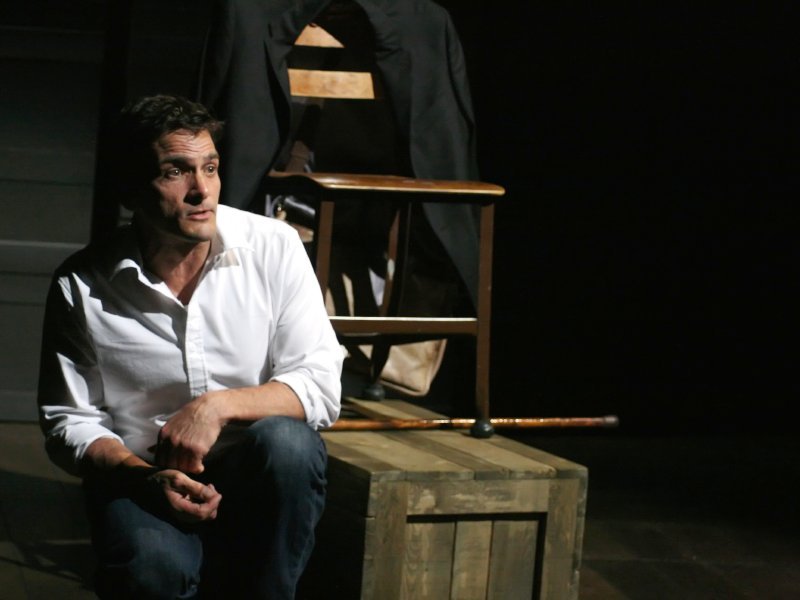The Wisconsin author of "When Pride Still Mattered," the most exhaustive biography of Packers legend Vince Lombardi, was, it turns out, born in Detroit. His new book, "Once in a Great City," explores a confluence of factors that intersected to create a unique moment in the history of the Motor City.
Maraniss, who has also written about the Vietnam War, Roberto Clemente and Lombardi – among others – says the book is part of an informal series of books exploring America in the 1960s. In this one, he looks at how the rise of Motown coincided with changes in the auto industry, the middle class and organized labor, and the dawn of the civil rights era.
Detroit was full of promise in 1963, when the fascinating and gripping "Once in a Great City" takes place. So what happened? We asked Maraniss about all that in advance of his Thursday, Oct. 8 appearance at Milwaukee Public Library's Centennial Hall at 6:30 p.m.
OnMilwaukee: At the beginning of the book, you explain that you sort of had an epiphany that you had to write the book when you saw the commercial on TV. When did it occur to you that you could only really write the book by interweaving all of these different narratives?
David Maraniss: Well, it worked in two stages. The first thought was that I wanted to write a book that showed what Detroit gave America, which is a lot. I figured about five different threads from that: music, Motown, labor, civil rights and connected to labor, sort of the evolution of the working middle class. Those are the five things I wanted to deal with. That really took me to a specific chronology, as well. To write about Motown, it had to be in a specific period of time starting from '59 to '70, basically.
To deal with civil rights, '63 seems like the right year. I also wanted to write about the Mustang and it came out in early '64. First came the idea of what I wanted to write about because of what I wanted to show that Detroit gave America. That then took me to the chronology.
OnMilwaukee: People tend to associate you with biographies: Vince Lombardi, Bill Clinton, Roberto Clemente. Was it challenging to write a book in which the main character is not a person, but a city?
Maraniss: You're right, the main character is probably Detroit itself, although, I think there are about six characters that emerge as somewhat major. I've done it once before with my book on Vietnam "They Marched Into Sunlight," which also weaves different threads together. It wasn't something that was utterly new to me, but it is an interesting challenge. It's quite different than doing a biography, where you have such a natural skeleton to deal with.
OnMilwaukee: Logistically speaking, how do you sew all that together? How do you give everybody kind of the screen time they need?
Maraniss: It's sort of free flowing. I do a rough outline of the book, but I leave enough room for my writing to, or the story itself, to change it a little bit. I can't really delineate in great particulars how I do it. It's just something that comes sort of, not magically, but it just sort of works that way. I do keep in mind the pace – I don't want characters to be off the stage for too long of time – and that I have several threads going at once. It just sort of figuring out it's time to get back to one or the other.
OnMilwaukee: It almost sounds sort of like songwriting where it just kind of happens.
Maraniss: Yeah. It is a little bit. It is a challenge, but I like that challenge. It's also something that just kind of happens, that I can't quite explain.
OnMilwaukee: What was the most interesting ... what surprised you most or came as the biggest revelation to you while you're doing this?
Maraniss: One of the stories that sort of I became obsessed with was, why did Motown happen in Detroit then? What were the creative juices or forces that made this incredible music in one place at one time with Smokey Robinson and the Miracles and Marvin Gaye and Stevie Wonder and the Temptations and Supremes and Mary Wells? It just extraordinary.
I tried to delve into that as deeply as I could. Obviously, some of the answers are obvious that Berry Gordy, the founder of Motown, had a particular genius at finding talent. Part of it was just luck that those people were around.
There are other factors that really fascinated me and that surprised me. One was on the role of public school music teachers. That every musician I interviewed remembered their elementary school and high school music teachers and talked about what an influence they were on the development of their musical talent. Another was the availability of pianos in so many single family homes in Detroit where working class people had disposable income because of the auto jobs. All of that was really sort of interesting and thrilling for me to uncover. With all of them together, it's sort of a perfect storm.
OnMilwaukee: You say that before the riots, before all this stuff that people tend to credit with the destruction of Detroit, this report came out that already said Detroit was on the fast track to trouble. Did anyone in the city really see this at the time or were they just kind of riding high and not really looking at where the car was going, so to speak?
Maraniss: Well, they had a slump in the late ‘50s and the population was already decreasing from its record high in the ‘40s and ‘50s. People were so positive in the early ‘60s that they really didn't see it. They didn't want to see it for different reasons, or they couldn't believe it. The sociologists basically predicted the depopulation of Detroit that went on. That they would lose a half million people every decade.
I think it's a lesson. There's not one reason that all of this happened. Certainly the later factors were involved to one degree or another, including the riots and the municipal corruption and so on. All of those points are secondary to the fact that structurally Detroit was already on the decline.
OnMilwaukee: Was there anything people could have done at the time, had they been willing or able to see it?
Maraniss: No. I think that the auto industry could have been more conscious of long-term interests rather as opposed to short-term gains and made sure that the city of Detroit stayed vibrant instead of leaving in it so many ways.
OnMilwaukee: In the sense that they opened plants all around the country?
Maraniss: Right. I mean, they could still do that, but still focus on Detroit, the city that made them.
OnMilwaukee: If we assume that the recent bankruptcy was the low point, the nadir of the situation, is it possible to have twice in a great city?
Maraniss: Well, in some ways, it still is a great city. That's why the word "in" is in my title as opposed to "Once a Great City." Whether it could ever be the same as it was is ... It'll be different. I think it is coming back. I think that in particularly that the downtown and the midtown area near Wayne State and the Institute of Arts are thriving. A lot of young people are moving to Detroit because it's so inexpensive and there's a certain energy there now.
It's sort of on the way to going from a symbol of a city of ruin to a city of hope in some ways. There's still vast swells of Detroit where people have lost their houses and are struggling because of lack of jobs. To bring that part back is incredibly difficult, as in Milwaukee. In many ways, Detroit is an exaggeration of a lot of cities, including Milwaukee. It's just getting a little more attention because of its history.
OnMilwaukee: If those of us in Milwaukee read this book, is there something we can take away and use in a tangible way?
David Maraniss: Well, if I had all the answers (laughs) … but I do think that you just have to pay attention to everything – the little things and the big things – and not let them slip. Not let it get to a point where it's irretrievably lost. Honor what made the city great in the first place.
Born in Brooklyn, N.Y., where he lived until he was 17, Bobby received his BA-Mass Communications from UWM in 1989 and has lived in Walker's Point, Bay View, Enderis Park, South Milwaukee and on the East Side.
He has published three non-fiction books in Italy – including one about an event in Milwaukee history, which was published in the U.S. in autumn 2010. Four more books, all about Milwaukee, have been published by The History Press.
With his most recent band, The Yell Leaders, Bobby released four LPs and had a songs featured in episodes of TV's "Party of Five" and "Dawson's Creek," and films in Japan, South America and the U.S. The Yell Leaders were named the best unsigned band in their region by VH-1 as part of its Rock Across America 1998 Tour. Most recently, the band contributed tracks to a UK vinyl/CD tribute to the Redskins and collaborated on a track with Italian novelist Enrico Remmert.
He's produced three installments of the "OMCD" series of local music compilations for OnMilwaukee.com and in 2007 produced a CD of Italian music and poetry.
In 2005, he was awarded the City of Asti's (Italy) Journalism Prize for his work focusing on that area. He has also won awards from the Milwaukee Press Club.
He has be heard on 88Nine Radio Milwaukee talking about his "Urban Spelunking" series of stories, in that station's most popular podcast.







